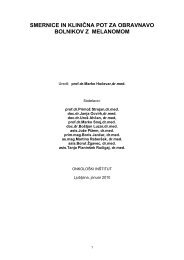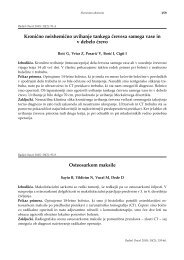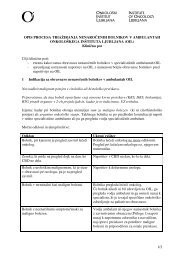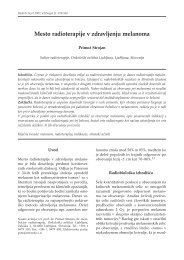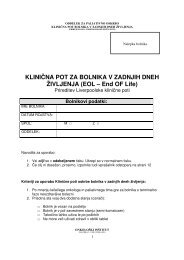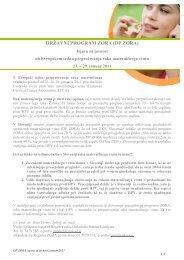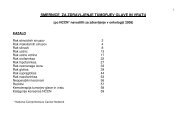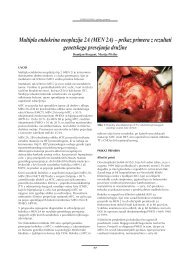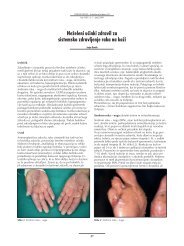Create successful ePaper yourself
Turn your PDF publications into a flip-book with our unique Google optimized e-Paper software.
Gene-expression and DNA-methylation profiling in<br />
breast cancer<br />
John A. Foekens*<br />
Erasmus MC, Josephine Nefkens Institute, Rotterdam, The Netherlands.<br />
High-throughput measures of gene expression and DNA methylation are promising<br />
developments in determining the prognosis of patients. We have developed a<br />
76-gene expression profile that can predict prognosis in lymph-node negative (LNN)<br />
breast cancer patients who had not received adjuvant systemic therapy. To develop<br />
the 76-gene signature we have used a training set of 115 tumors. Validation in<br />
an independent testing set of 171 patients showed the 76-gene signature to be<br />
strongly associated with a poor metastasis-free survival (MFS) (HR: 5.7). Subsequent<br />
multicenter validation including 180 LNN patients confirmed the 76-gene signature<br />
as a strong prognostic factor for poor MFS (HR: 7.4), also in postmenopausal patients<br />
(HR: 9.8). Separately, using a training set of 72 tumors we established a 31-gene<br />
signature that with 100% sensitivity, and 50% specificity, predicted the occurrence<br />
of relapse to the bone in a testing set of 35 untreated LNN patients. Our results<br />
pointed to the involvement of the FGF signaling pathway in preference of tumor<br />
cells that relapse to bone. Further extensive pathway analysis studies including a<br />
total of 345 tumors showed highly distinctive pathways that are associated with<br />
poor prognosis in subgroups of 221 ER-positive and 124 ER-negative tumors. With<br />
respect to DNA methylation analysis, using a microarray-based technology for the<br />
analysis of promoter CpG methylation for 117 candidate genes, we found that<br />
phosphoserine aminotransferase was the strongest factor associated with failure to<br />
tamoxifen therapy in 200 patients with recurrent breast cancer. In LNN patients who<br />
were treated with adjuvant tamoxifen, PITX2 appeared the strongest prognostic<br />
factor, which was confirmed in several multicenter studies. A major advantage of<br />
DNA-methylation analysis is that it can easily be performed by methylation specific<br />
PCRs on DNA isolated from paraffin-embedded tissues as well.<br />
54l36<br />
*In collaboration with Veridex LLC, a Johnson & Johnson Company, San Diego, USA;<br />
the EORTC Receptor and Biomarker Group; and Epigenomics AG, Berlin, Germany,<br />
together with the EpiBreast Group.



